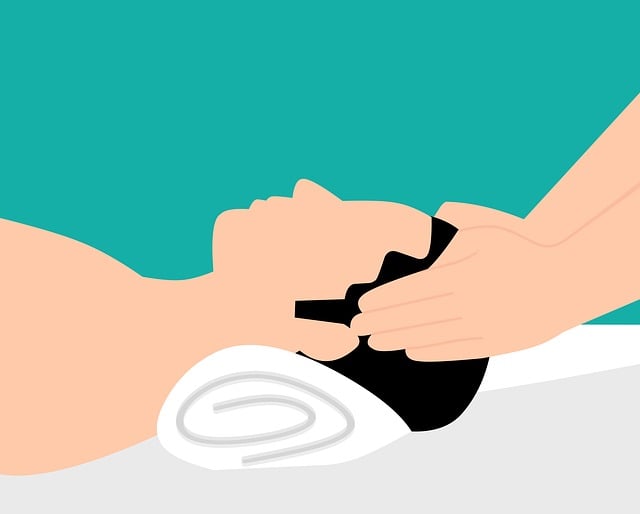Depression therapists play a pivotal role in mental health treatment, offering specialized care through various effective approaches. They conduct thorough evaluations to diagnose depression, tailoring interventions based on individual needs. Cognitive Behavioral Therapy (CBT) focuses on negative thought patterns, equipping individuals with coping skills and a positive outlook. Interpersonal Therapy (IPT) addresses relationship issues, encouraging social engagement. Mindfulness-Based Therapies foster self-awareness and emotional regulation. Psychodynamic therapy delves into past experiences to uncover root causes. Depression supportive therapy provides a safe space for expression and validation, building resilience. These strategies empower depression therapists to offer comprehensive care, addressing diverse aspects of depression.
Depression is a complex condition, but specialized therapy techniques offer hope and healing. This article explores various evidence-based therapies designed by depression therapists to address this mental health challenge. From understanding the role of assessment and diagnosis to popular approaches like Cognitive Behavioral Therapy (CBT) and Interpersonal Therapy (IPT), each section delves into effective strategies for managing depression. Discover how mindfulness, psychodynamic insights, and supportive environments can empower individuals in their journey towards recovery.
Understanding Depression: The Role of Therapists in Diagnosis and Assessment

Depression is a complex mental health condition that requires tailored therapy approaches for effective treatment. Depression therapists play a pivotal role in diagnosing and assessing individuals presenting with depressive symptoms. Through comprehensive evaluations, they uncover the underlying causes and contributing factors of depression, which can vary widely from person to person. This process involves exploring an individual’s medical history, psychological background, and current life circumstances to gain a nuanced understanding of their experience.
Therapists use validated assessment tools and clinical expertise to differentiate between various types of depression, such as major depressive disorder, persistent depressive disorder (dysthymia), or seasonal affective disorder (SAD). This diagnosis is crucial as it guides the selection of appropriate therapy techniques, ensuring that each client receives personalized care. By understanding the unique presentation and needs of their clients, depression therapists can develop targeted interventions to alleviate symptoms, enhance coping strategies, and improve overall well-being.
Cognitive Behavioral Therapy (CBT): A Popular and Effective Approach

Cognitive Behavioral Therapy (CBT) is a popular and effective approach among depression therapists. This evidence-based therapy focuses on identifying and changing negative thought patterns and behaviors that contribute to depressive symptoms. CBT helps individuals challenge and replace irrational beliefs with more realistic and positive ones, thereby improving their mood and overall well-being.
Depression therapists using CBT work collaboratively with clients to set specific goals and develop strategies tailored to their unique needs. Through structured sessions, patients learn coping skills, problem-solving techniques, and stress management strategies. By addressing underlying cognitive distortions, CBT enables individuals to gain a more balanced perspective on life events, fostering resilience and a sense of empowerment in managing their depression.
Interpersonal Therapy (IPT): Focus on Relationships and Social Connections

Interpersonal Therapy (IPT) is a structured psychotherapeutic approach specifically designed for individuals experiencing depression. This therapy technique places a strong emphasis on an individual’s relationships and social connections, recognizing that emotional distress often has roots in interpersonal issues. IPT aims to help patients understand and resolve problems in their personal interactions, which can significantly impact their mental health. Depression therapists skilled in IPT work collaboratively with clients to identify specific interpersonal difficulties, such as conflict resolution challenges, feelings of isolation, or problematic attachment styles, and develop strategies to address these concerns.
Through IPT, patients learn to communicate more effectively, assert their needs, and manage conflicts, thereby fostering healthier relationships. This therapy type encourages individuals to engage in meaningful social activities, which can combat the social withdrawal often associated with depression. By focusing on these interpersonal aspects, IPT offers a unique perspective on managing depression, promoting not only emotional well-being but also enhancing an individual’s overall quality of life and relationships with others.
Mindfulness-Based Therapies: Techniques for Present-Moment Awareness

Mindfulness-Based Therapies focus on training individuals to be fully present in the moment, a skill that can significantly help depression therapists support their clients. These techniques encourage patients to observe their thoughts and feelings without judgment, fostering a deeper understanding of their emotional patterns. By cultivating present-moment awareness, individuals can learn to accept their emotions as they are, reducing the tendency to ruminate on negative experiences.
This approach often involves mindfulness meditation practices, where therapists guide clients through focused breathing exercises and body scans to enhance self-awareness. Such practices help individuals become more attuned to their mental and physical states, enabling them to recognize early warning signs of depression and develop coping strategies. Through regular practice, mindfulness can transform one’s relationship with negative thoughts, leading to improved mood regulation and overall well-being.
Psychodynamic Therapy: Exploring the Past to Gain Insight into Current Behavior

Psychodynamic therapy is a powerful approach for depression therapists to help clients understand and overcome their struggles. This therapeutic method delves into the patient’s past experiences, relationships, and early life events to uncover underlying conflicts and emotions that may be contributing to their current state of mind. By exploring these repressed or forgotten memories, depression therapists can gain valuable insights into a client’s behavior patterns, thought processes, and emotional responses.
Through this process, individuals can develop a deeper awareness of their unconscious mind, identify recurring themes in their past and present, and understand how early experiences shape their current reactions to stressful situations. By bringing these hidden aspects into consciousness, psychodynamic therapy empowers clients to challenge unhelpful beliefs, modify negative behaviors, and foster healthier ways of coping with depression.
Supportive Therapy: Creating a Safe Space for Emotional Expression

Depression supportive therapy is a cornerstone in many treatment plans, creating a safe and non-judgmental space for individuals to express their emotions is paramount. This therapeutic approach encourages patients to openly discuss their feelings, thoughts, and experiences without fear of criticism or rejection. By fostering an environment of warmth, empathy, and understanding, depression therapists help clients feel validated, empowering them to explore and challenge negative thought patterns more effectively.
This technique goes beyond mere listening; it involves active reflection, clarification, and encouragement from the therapist. Such support is instrumental in building resilience and promoting self-acceptance, crucial elements in managing depression. Through this safe space, individuals can begin to understand and reinterpret their experiences, laying the groundwork for positive changes in mood and outlook.
